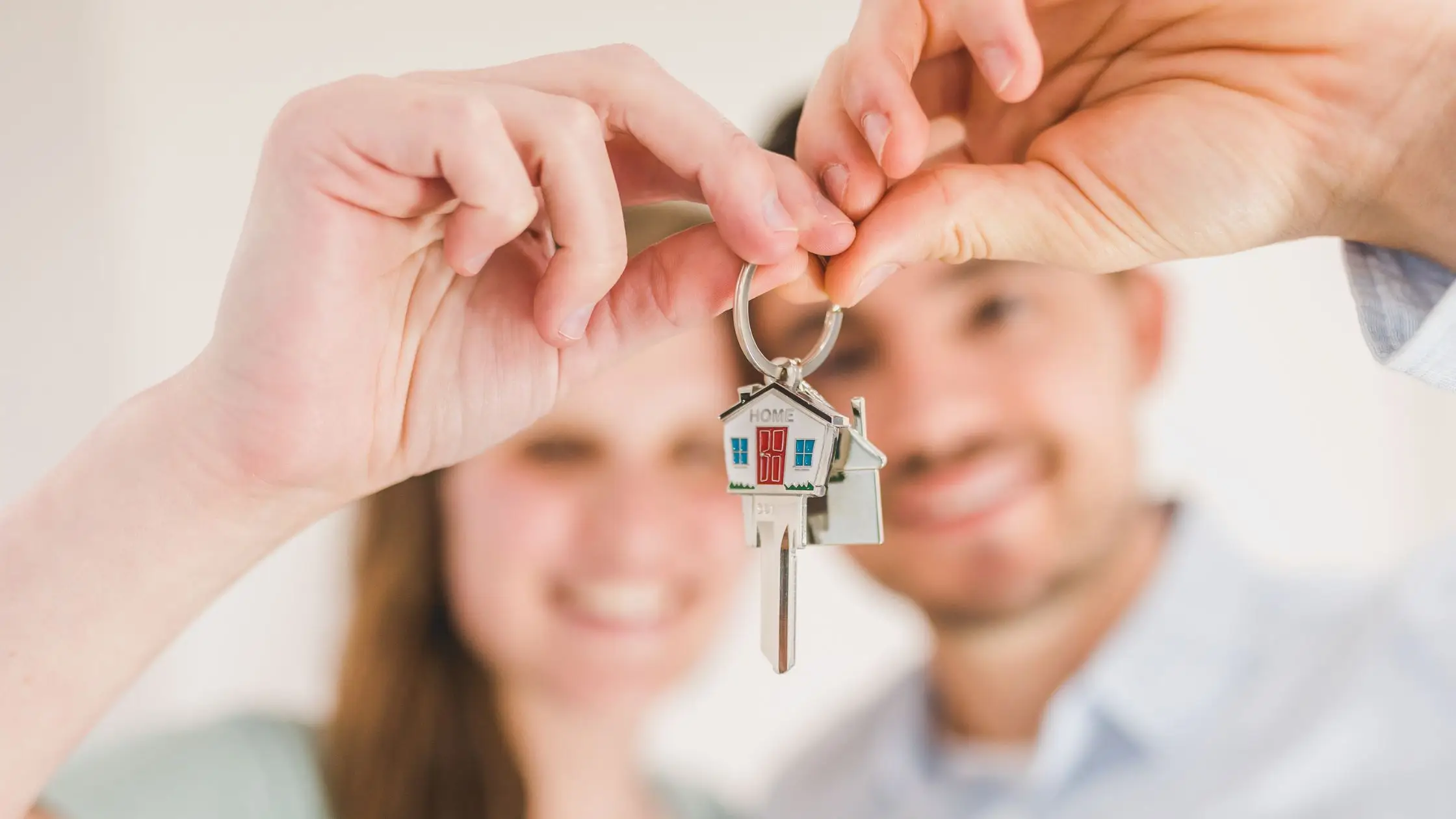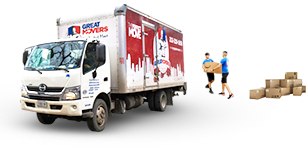
Pros and Cons of Buying a House in New Jersey
Deciding between buying a house or renting an apartment in New Jersey is an important decision and ultimately boils down to your circumstances. For many, homeownership is often seen as the next step in adulthood as it means you now own an appreciating asset and can decorate and remodel as you see fit without needing to ask a landlord. Still, buying a home isn’t always the best choice, so how do you decide which one is right for your circumstances?
Advantages of Owning a Home
Buying a home is a huge decision and requires a lot more planning than renting a home or apartment. However, there are a lot of benefits to being a homeowner that you might not realize, especially if you have been renting for a long time.
Consistent Monthly Payments
The biggest benefit is the monthly cost especially in areas with a low cost of living. Gone are the days where you wait for the rent increase letters from your landlord when you want to renew your lease. Instead, you have a 30-year fixed-rate mortgage where the principal and interest rates are the same every month. You can even reduce your payment by refinancing it if the rate drops. If you’re comfortable paying a higher monthly amount, you can go for a short-term mortgage.
Build Equity and Net Worth
Another huge benefit of owning a home is that you build equity with each payment you make. Take a look at the amortization schedule you received that came with your closing paperwork to see how much you’re actually paying towards the interest chargers and loan balance. In the beginning most of your payment will go towards the interest, but over time you’ll pay down more of your loan, which will build equity. In general, it can take up to 10 years to actually build positive equity for your home, but the longer you live there the more wealth you can build.
On that topic, you can convert your home’s equity to cash, which you can use to pay for improvements on your house, consolidate your credit cards, pay for college or a business, or even purchase a vacation home or rental properties. The best part is that you don’t need to sell your house to have access to these funds. There are a few ways you can have access to the cash:
- Cash-out refinance - this involves taking out a larger loan amount for more than you currently owe and pocketing the difference. You can usually borrow up to 80% of your home’s value
- Home equity loan - a popular choice if you’d rather borrow against your equity without replacing your current mortgage. You’ll get the funds in a lump sum and pay a fixed rate.
- Home equity line of credit (HELOC) - this works like a credit card but is secured by your home. You only make payments on the amount you use and can pay off and reuse the credit for around 10 years or so.
- Reverse mortgage - If you’re over the age of 62 you can convert your equity to cash and you won’t have to worry about a monthly mortgage payment
As you increase your equity over the years, your home value will also increase over time so long as there’s no major hiccup in the real estate market similar to the 2008 housing crash. This, in turn, increases your overall net worth and if you do sell, you’ll hopefully be able to pocket a bit of cash.
Build Community
Owning a home provides stability, which is especially important if you have children. Most homeowners live in their homes for 10 years before selling, which means you have plenty of time to get to know your neighbors and for your children to make lifelong friends. Plus, your kids will likely do better in school as they won’t have to worry about moving and you can be involved with community organizations like school boards, PTA, etc.
Disadvantages of Owning a Home
While homeownership is great, there’s a reason why many people opt to rent apartments instead of purchasing a house. Not everyone is right for ownership so it’s important to weigh the pros and cons before you decide to take the plunge.
High Upfront Costs
While owning a house might be cheaper in the long run, you have to put up a lot of money in order to close. People often save for years to have enough to afford the downpayment for a house. And that’s just the beginning of upfront costs. Unless it’s specifically stated that the owner will pay for closing, you will need to provide it. Closing costs generally run from 2-5% of the purchase price and includes fees such as:
- Property tax - New Jersey has the highest property taxes in the nation!
- Mortgage insurance if you end up putting a down payment of less than 20%
- Home inspection
- First-year homeowner’s insurance premium
- Title search
- Title insurance
- Points - prepaid interest on mortgage
It can take up to five years to recover all these costs!
Ongoing Costs
On top of the upfront money you need to spend, you’ll also have to pay a lot on a monthly basis. Sure, your mortgage might be cheap, but once you include everything else, you might end up paying the same if not more as rent on a home. If you’re used to renting, all of the costs you need to pay for may come as a surprise. You probably already pay for electricity, gas, and internet, but if you own your home, you have to also pay for:
- Water
- Sewage
- Trash collection
- Heating
- Homeowners Association dues (if applicable)
- Homeowners Insurance
- Private Mortgage Insurance - if you paid under 20% with your down payment
- Property Tax
All of this can add up to hundreds if not thousands of extra dollars that you’ll need to include in your monthly budget. Make sure you have enough money to pay for all of these as well as the basics like food, gas, car insurance, clothes, etc.
Maintenance
You are the owner of your house, which means you are responsible for everything! So if your roof leaks or an appliance breaks down, you will need to figure out how to fix that and pay for it. Living in an older house might seem romantic, until there’s something you need to fix every month. Before you fall in love with a place, ask about upkeep on key items like the roof, boiler, septic tank, etc. Ideally, you’ll want a place with a relatively new roof and appliances as they should last around 5-10 years with yearly check-ups/maintenance.
And speaking of maintenance, don’t forget you have to maintain your entire property. So if a tree falls down into your neighbors yard, you will need to pay for its removal. If you are part of an HOA you will also have to follow the rules set out including keeping your lawn mowed, having a well-kept house, and, if you have a dog, ensuring you have the appropriate enclosures to prevent your dog from entering your neighbor's property.
Less Mobility
What might have seemed like a dream house can end up being a nightmare. Maybe you hate your neighbors or perhaps you got a great job opportunity on the other side of the country. Whatever the reason, you need to move quickly. Unfortunately, selling a house can take some time especially if you’re moving during the winter. And while houses have been selling quickly, there’s no guarantee this will last. Plus, a fast-moving market means it will also be harder for you to find a new home without putting down a lot of money. If you know your career requires frequent moves if you just want flexibility, home ownership might not be the best option.
Falling Property Values
Homes are generally an investment and their value continues to grow over the years. But that doesn’t mean that’s always the case. For example, in 2008 property values plummeted due to the housing crisis and those who had to move during this time ended up losing a lot of money as their houses were selling for below the initial purchase price. Ideally, you can ride out the downturn and wait for the market to rebound, but that might not always be the case. Still, buying is generally a safe investment and you should only consider purchasing a place if you plan on living there for a long time.
Move to Your NJ Home
Whether you decide to buy a place or rent, NJ Great Movers can help make your transition seamless. We’ve moved hundreds of people all over New Jersey so we know exactly how to navigate the streets and homes of NJ. If you need professional NJ movers, look no further! We can help with local or long-distance moves and offer full packing services and storage.
